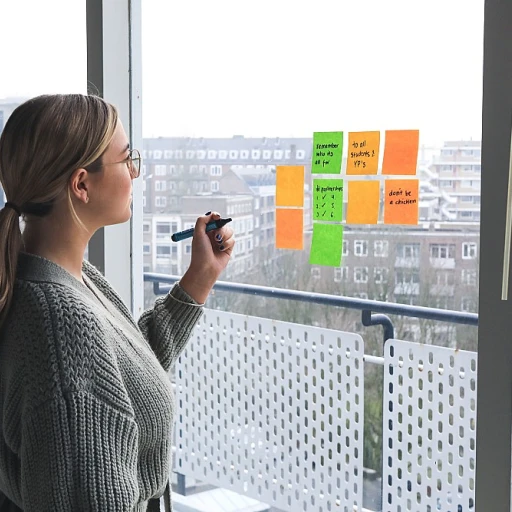Understanding Procurement Dynamics
Exploring the Procurement Landscape
In the rapidly evolving world of IT firms, understanding procurement dynamics is pivotal. The procurement process is not just about purchasing goods and services; it's a strategic function that can significantly influence a company's bottom line. For office managers in New Zealand, mastering this process is crucial for achieving cost savings and optimizing supply chain efficiency.
Procurement involves a series of interconnected activities, from strategic sourcing to supplier performance evaluation. The process is designed to ensure that a company acquires the right products and services at the best possible price. This includes leveraging procurement software and platforms to streamline operations, manage purchase orders, and maintain real-time data visibility. As technology continues to advance, the role of procurement management software becomes even more critical in lifecycle management and risk management.
Understanding the nuances of procurement is essential for office managers aiming to enhance their company's procurement strategy. By focusing on supplier relationships and strategic sourcing, businesses can achieve significant cost savings and improve their overall procurement processes. For more insights on how office managers can revolutionize team efficiency, explore this resource.
Unique Challenges in New Zealand
Local Market Complexities
New Zealand's unique market dynamics present specific challenges for procurement professionals in IT firms. Due to its geographical location, the country often faces longer supply chains and higher logistics costs, which can significantly impact the procurement process. This requires businesses to adopt strategic sourcing methods to optimize their supply chain and ensure timely delivery of goods and services.
Regulatory Environment
The regulatory landscape in New Zealand also influences procurement strategies. Companies must navigate a range of local compliance requirements and standards, which can add complexity to the procurement lifecycle management. Understanding these regulations is crucial for mitigating risk and ensuring that procurement processes align with national laws.
Supplier Diversity and Relationships
Building strong supplier relationships is essential in the New Zealand context, where the market size can limit supplier options. Effective supplier relationship management can lead to better supplier performance and cost savings. IT firms must focus on developing long-term partnerships with suppliers to enhance their procurement strategy and ensure a reliable supply of hardware and software.
Data-Driven Decision Making
Leveraging procurement software and real-time data can help companies make informed decisions. By utilizing advanced management software, businesses can streamline their procurement processes, improve spend management, and achieve greater cost efficiencies. This data-driven approach is crucial for optimizing procurement services and enhancing supplier performance.
For more insights on navigating the procurement process in New Zealand companies, you can explore navigating the procurement process in New Zealand companies.
Technology's Role in Procurement
The Transformative Impact of Technology on Procurement
In the realm of procurement, technology is no longer a mere support function but a critical driver of strategic sourcing and spend management. For IT firms in New Zealand, leveraging advanced procurement software and management solutions is essential to streamline the procurement process and achieve cost savings.
Modern procurement strategies are heavily reliant on data-driven insights. Real-time data analytics empower companies to make informed purchasing decisions, optimize supplier performance, and enhance the overall procurement lifecycle management. By integrating technology into their procurement processes, businesses can better manage their supply chain and mitigate risks associated with supplier relationships.
Moreover, the use of procurement platforms enables companies to automate routine tasks such as purchase order processing and accounts payable management. This not only reduces the time spent on manual processes but also allows procurement teams to focus on strategic initiatives that drive value for the company.
For IT firms, where hardware and software procurement is a significant part of their operations, technology plays a pivotal role in ensuring efficient sourcing and supplier management. By adopting procurement consulting services, companies can tailor their procurement strategy to align with their business objectives, ensuring that they are well-positioned to capitalize on emerging trends and opportunities.
As New Zealand continues to embrace technological advancements, it's crucial for businesses to assess whether their procurement processes are keeping pace with the country's tech revolution. For more insights on how technology is reshaping office efficiency, explore harnessing AI efficiency.
Sustainable Procurement Practices
Embracing Eco-Friendly Procurement
In today's business landscape, sustainable procurement practices are not just a trend; they are a necessity. Companies, especially in the IT sector, are increasingly recognizing the importance of integrating sustainability into their procurement strategies. This involves not only sourcing eco-friendly products but also considering the entire lifecycle management of goods and services.
Adopting sustainable procurement practices can lead to significant cost savings over time. By focusing on strategic sourcing, businesses can ensure that they are getting the best value while also minimizing their environmental impact. This involves a thorough evaluation of suppliers, assessing their sustainability credentials, and ensuring that they align with the company's values.
Implementing Sustainable Solutions
Technology plays a crucial role in facilitating sustainable procurement. Procurement software and platforms can help companies track and manage their purchasing processes in real time, allowing for better spend management and supplier performance evaluation. These tools enable businesses to make informed decisions that support their sustainability goals.
Moreover, by leveraging procurement consulting services, companies can gain insights into best practices and innovative solutions that can enhance their procurement strategy. This can include everything from optimizing the procurement process to implementing risk management strategies that consider environmental factors.
Building Strong Supplier Relationships
Supplier relationship management is a key component of sustainable procurement. By fostering strong relationships with suppliers, companies can ensure a steady supply chain while also encouraging suppliers to adopt sustainable practices. This collaborative approach can lead to mutual benefits, including reduced costs and improved supplier performance.
In conclusion, sustainable procurement is an integral part of modern business management. By prioritizing eco-friendly practices and leveraging technology, companies can not only reduce their environmental impact but also achieve long-term success in their procurement processes.
Supplier Relationship Management
Building Strong Supplier Relationships
In the complex landscape of procurement, particularly within the IT sector, managing supplier relationships is crucial. The procurement process involves a series of interactions and negotiations that can significantly impact a company's bottom line. A robust supplier relationship management strategy can lead to cost savings, improved supply chain resilience, and enhanced service delivery.
For IT firms in New Zealand, fostering strong relationships with suppliers is essential. These companies often rely on a mix of hardware and software suppliers to meet their business needs. By establishing clear communication channels and maintaining transparency, firms can ensure that they are not only sourcing the best products but also securing favorable terms and conditions.
Key Strategies for Effective Supplier Management
- Data-Driven Decisions: Leveraging procurement software and data analytics can provide insights into supplier performance and help identify areas for improvement. Real-time data allows companies to make informed decisions, optimizing the procurement process and enhancing supplier relationships.
- Lifecycle Management: Understanding the entire lifecycle of goods and services is crucial. This involves strategic sourcing and risk management to ensure that the procurement team is aligned with the company's long-term goals.
- Regular Performance Reviews: Conducting regular reviews of supplier performance can help identify potential issues early on. This proactive approach allows companies to address problems before they escalate, ensuring a smooth supply chain operation.
- Collaborative Partnerships: Building a partnership rather than a transactional relationship with suppliers can lead to mutual benefits. Collaborative efforts can drive innovation and provide tailored solutions that meet specific business needs.
By focusing on these strategies, IT firms can enhance their procurement strategy and ensure that their supplier relationships contribute positively to their overall business objectives. As the industry continues to evolve, maintaining strong supplier connections will remain a key component of successful procurement processes.
Future Trends in Procurement
Emerging Trends Shaping the Future of Procurement
The procurement landscape is evolving rapidly, driven by technological advancements and changing business needs. As IT firms in New Zealand strive to enhance their procurement strategies, several trends are emerging that could redefine how procurement processes are managed.
- Digital Transformation: The integration of advanced procurement software is transforming how companies manage their purchasing processes. These platforms offer real-time data analysis, improving spend management and enabling more strategic sourcing decisions.
- AI and Automation: Automation tools are streamlining the procurement lifecycle management, reducing time spent on repetitive tasks, and allowing the procurement team to focus on strategic initiatives. AI-driven solutions also enhance supplier performance monitoring, ensuring better risk management and cost savings.
- Sustainability Focus: As discussed earlier, sustainable procurement practices are gaining traction. Businesses are increasingly prioritizing suppliers who adhere to environmentally friendly practices, aligning with global sustainability goals.
- Enhanced Supplier Collaboration: Building strong supplier relationships is becoming more crucial. Companies are investing in procurement consulting services to improve supplier relationship management, ensuring a more resilient supply chain.
- Cloud-Based Solutions: Cloud technology is facilitating better collaboration and communication within procurement teams. It offers a centralized platform for managing procurement processes, from purchase order creation to accounts payable.
These trends highlight the need for IT firms to continuously adapt their procurement strategies. By leveraging technology and fostering strong supplier relationships, businesses can achieve greater efficiency and competitiveness in the global market.












